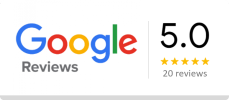Starting an online store is an exciting step toward business growth, but choosing the right eCommerce platform can be overwhelming. With dozens of options available, Shopify and WooCommerce consistently top the list for entrepreneurs and business owners. They both offer powerful tools, scalability, and customisation but they serve different types of users and business models.
In this comprehensive guide, we’ll explore the pros, cons, pricing, features, scalability, ease of use, and everything else you need to know when deciding between Shopify and WooCommerce.
What is Shopify and WooCommerce?
Before diving into the comparison, let’s clarify what each platform is:
- Shopify is an all-in-one, hosted eCommerce platform. It provides everything you need including hosting, security, and tools to set up and manage your online store without technical knowledge. It’s known for its ease of use and reliability.
- WooCommerce is an open-source eCommerce plugin for WordPress. It turns a WordPress website into a fully functional online store. You’ll need to handle your own hosting, security, and updates, but you’ll also enjoy greater control and flexibility.
Who Is Each Platform Best For?
| Platform | Best For |
| Shopify | Beginners, entrepreneurs who want a fast and easy setup, and those who don’t want to deal with technical tasks. |
| WooCommerce | Users who already have a WordPress site, developers, and businesses wanting full control over design, features, and hosting. |
Ease of Use
Shopify
Shopify shines when it comes to simplicity. Its clean dashboard, drag and drop builder, and guided setup process make it extremely user-friendly even for complete beginners.
- Hosting, security, and performance are managed by Shopify.
- You don’t need coding knowledge to launch a beautiful store.
- Built-in support and help guides are plentiful.
Verdict: Ideal for non-technical users who want to launch quickly and easily.
WooCommerce
WooCommerce has a steeper learning curve because it’s self-hosted and built on WordPress.
- You’ll need to install WordPress, choose a host, set up a theme, and configure plugins.
- Some knowledge of hosting, FTP, and file management is helpful.
- You control every aspect but also handle the maintenance.
Verdict: Better suited for users comfortable with tech or working with a developer.
Pricing Comparison
Shopify
Shopify has fixed pricing plans:
- Basic Shopify – $39/month
- Shopify – $105/month
- Advanced Shopify – $399/month
You also need to factor in:
- Credit card transaction fees
- App costs
- Theme costs (free and paid options)
Bonus: Shopify includes hosting, SSL certificate, and support.
WooCommerce
WooCommerce itself is free, but you’ll pay for:
- Hosting (from $5–$30/month depending on performance)
- Domain name
- SSL certificate (often included in hosting)
- Paid plugins/extensions
- Developer fees (if needed)
While WooCommerce can be cheaper upfront, costs vary more depending on your needs.
Customisation & Flexibility
Shopify
Shopify themes are polished, mobile-responsive, and easy to customise within limitations. However:
- Advanced design or feature changes may require editing Liquid (Shopify’s templating language).
- Apps can extend functionality but often involve monthly fees.
- More streamlined but less flexible than WooCommerce.
WooCommerce
WooCommerce wins when it comes to full control:
- You can customise every element of your website using WordPress themes and plugins.
- Developers can build or modify almost anything.
- Better for businesses with specific needs or wanting a tailored experience.
Verdict: WooCommerce is more flexible. Shopify is more beginner friendly.
Features & Integrations
Shopify
Shopify includes nearly everything you need out of the box:
- Unlimited products
- Abandoned cart recovery
- Multi-channel selling (eBay, Amazon, Instagram, etc.)
- Inventory management
- Built-in analytics
- Powerful App Store (over 8,000 apps)
It’s built specifically for eCommerce, so features are focused and refined.
WooCommerce
WooCommerce is highly extendable through plugins:
- Integration with thousands of WordPress plugins
- SEO plugins like Yoast
- Advanced blogging and content management
- Support for custom shipping, payment gateways, and rules
However, you may need to install multiple plugins to achieve the same functionality Shopify provides natively.
SEO & Blogging Capabilities
Shopify
Shopify has solid SEO features:
- Customisable meta tags, URLs, and image alt tags
- Mobile optimisation
- Fast hosting with CDN for performance
However, its blogging capabilities are quite basic compared to WordPress.
WooCommerce
Built on WordPress (arguably the best blogging platform in the world), WooCommerce is unbeatable for content-driven eCommerce.
- Superior blogging and CMS functionality
- Powerful SEO plugins like Yoast and Rank Math
- More granular control over technical SEO
Verdict: WooCommerce is better if content marketing and SEO are key to your growth strategy.
Security & Hosting
Shopify
Shopify takes care of everything:
- Free SSL certificate
- PCI compliance
- Daily backups
- 99.99% uptime
- Automatic updates
You don’t need to worry about servers or site security Shopify handles it.
WooCommerce
With WooCommerce, you’re responsible for:
- Choosing a secure and reliable hosting provider
- Installing an SSL certificate
- Managing site security with plugins like Wordfence or Sucuri
- Backups and updates
Verdict: Shopify wins for hands-off security and peace of mind.
Scalability
Both platforms are scalable but in different ways.
Shopify
- Great for fast-growing businesses
- Shopify Plus is ideal for large enterprises
- Handles spikes in traffic effortlessly
You can grow without technical concerns, but you’ll pay more as your business grows.
WooCommerce
- Also scalable, but requires better hosting and optimization
- More control over performance tuning
- Ideal for businesses with custom needs or large content libraries
Verdict: Shopify is easier to scale. WooCommerce offers more control during scaling.
Support & Community
Shopify
- 24/7 customer support via chat, phone, or email
- Large help centre, forums, and tutorials
- Priority support on higher plans
WooCommerce
- No official support unless you buy extensions
- Community forums, Facebook groups, and Stack Overflow are helpful
- Hosting support depends on your provider
If you need hands-on help, Shopify provides more structured support.
Payment Gateways & Fees
Shopify
Shopify supports multiple payment gateways but charges extra fees if you don’t use Shopify Payments:
- Shopify Payments: 0% transaction fee
- Third-party gateways: Up to 2% fee depending on your plan
WooCommerce
You can integrate any payment gateway you like, including:
- Stripe, PayPal, AfterPay, POLi, etc.
- No extra fees charged by WooCommerce
You only pay gateway fees not platform fees.
Verdict: WooCommerce is more cost-effective in terms of transaction fees.
Pros and Cons at a Glance
Shopify Pros
- Easy to use, even for beginners
- All-in-one solution
- Fast and secure hosting
- 24/7 support
- Excellent design themes
Shopify Cons
- Monthly costs can add up
- Limited design flexibility
- Transaction fees for third-party payments
- Less control over hosting and data
WooCommerce Pros
- Full control and flexibility
- More powerful for content and SEO
- No transaction fees
- Thousands of plugins and integrations
- Customizable for any business model
WooCommerce Cons
- Steeper learning curve
- Self-hosted (you manage updates/security)
- Support depends on third parties
- Can get technical for beginners
Final Verdict: Which One Should You Choose?
| Choose Shopify if… | Choose WooCommerce if… |
| You want an easy, all-in-one solution | You want full control over your website |
| You don’t want to deal with hosting or security | You already use WordPress or want advanced content features |
| You prefer simplicity over flexibility | You have a developer or some tech skills |
| You want reliable support | You want to avoid platform transaction fees |
| You want to launch fast | You want maximum customisation |
Still Not Sure? Here’s a Tip
If your top priority is speed, support, and ease, Shopify is your best bet.
If your focus is customisation, content marketing, and control, WooCommerce is the winner.
Still unsure? You can always start small with Shopify and migrate to WooCommerce later as your needs become more complex or vice versa.
Need Help Choosing or Building?
At Swaich Web Design, we help businesses across New Zealand launch stunning, high-performing online stores whether you’re using Shopify or WooCommerce. If you are looking for website design Auckland based services, you can contact us and we will sort everything out for you.


